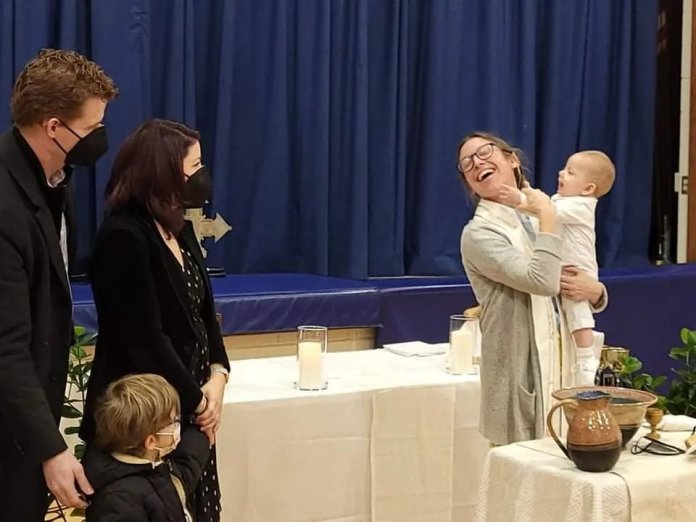According to the liturgical calendar that is followed by millions of churches across the globe, we are in the season of Epiphany, where Christians look for the ways Jesus is revealed in the world. At the start of this politically charged year, it seemed like a good opportunity to reflect on one way that Jesus is showing up in “the swamp,” and how Christians of different political allegiances can create a place of belonging that transcends politics.
My experience is that you can’t avoid the image of God in your neighbor, when you regularly worship and fellowship with people from across the aisle.
One of the unique aspects of going to church in the DC area, is that the Christian world here is a small one. Contrary to what one might think about the area, it’s not unusual to find oneself worshiping next to someone from across the aisle politically. “We see how the sausage is made and we know the people making the sausage,” said Father Morgan Reed, vicar of Corpus Christi Anglican Church in Springfield, VA. Reed started Corpus Christi in the spring and summer of 2020, after working helping to plant Incarnation Anglican Church in South Arlington in 2018 (full disclosure: my family and I have been part of Incarnation since it began).
Both of these churches were founded during one of the worst times of political polarization our country has faced. And both churches had people with a mix of political alignments that seemed to defy the trend of self-sorting that was taking place in churches and communities around the country. Incarnation began in a unique context, coming on the heels of both the 2015 Supreme Court decision permitting same-sex marriage across the United States, and the 2016 election.
Reflecting on Incarnation’s beginnings, the church’s head priest, Rev. Amy Rowe shared, “We were not an established church trying to make sense of these social changes, but a church being built in that context. It shaped who wanted to be part of it.”
Reed, when asked to describe the context in which Incarnation was planted, shared that “the things that were not political before all of a sudden became political. In other words, if before I’d say ‘hey, I want to care for my neighbors, who by the way are immigrants who are here illegally, how do I share the love of Jesus with them?’ didn’t feel as controversial. Until Trump was elected and then all of a sudden…there’s a loss of nuance in discussing social justice and kingdom justice because it became done along party lines rather than human lines.”
Incarnation’s first Sunday service in 2018 featured an ideologically diverse group, with attendees sometimes diametrically opposed to each other’s work and politics, receiving the Eucharist and sharing a common cup for wine. Though Corpus Christi began online during the pandemic, it featured a core group of families who were committed to creating a local church in Springfield with a focus on a more formal service. The “shared project of building something new,” according to Rowe, seemed to hold greater weight than political ideologies.
Ultimately, while neither church has been immune to the political self-sorting that’s been going on for the past several years, Incarnation and Corpus Christi still remain politically diverse congregations. Rowe believes that this political pluralism is happening because “people really want to encounter Jesus. They stay in the mess because they are hungry for Jesus.”

In its bridge-building work, The Clapham Group has been looking at “belonging” as a way forward during these days of heightened polarization. After my conversations with both Revs. Reed and Rowe, I reflected on how these churches were creating inclusive cultures for their congregants to be authentically themselves. I saw three things that seem necessary for belonging:
- A shared narrative or story
- A shared vision
- A shared mission
Read it all at the Clapham Group










